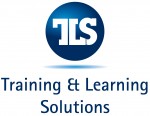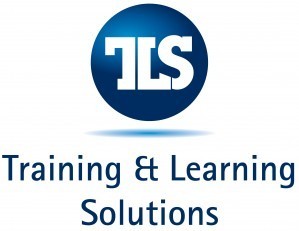Below outlines some of the successful programmes we’ve completed for some of our valued clients.
Success Stories – Old
Case Study 1
This Teambuilding Residential programme was tailored to meet the needs of the management team within an independent company which tests a wide variety of pharmaceutical products, offering world class clinical research based in Northern Ireland. The programme was designed to enable the management team to improve on interpersonal relationships, to work together more effectively as cross functioning teams and build on the skills they needed to communicate effectively with their own teams. The residential was a 2-day event with an overnight stay off site, which combined classroom intervention with outdoor activities. The programme looked at Corporate values/culture, key roles and responsibilities, the roles of teams and individuals using Belbin’s theory of team roles, the Tuckman model of group formation and the importance of communication with team members.
Case Study 2
This Teambuilding programme was facilitated in Barcelona and was designed for a leading London/Birmingham based Immigration Consultancy Firm of solicitors.
The programme was aimed at bringing together the solicitors and support staff from both sites to encourage them to get to know each other, build on team morale, improve communications and celebrate their successes to date. This was a weekend residential (2 night stay) in the city of Barcelona and incorporated classroom based theory with a city Team Treasure Hunt. The programme content included the new Corporate vision, a better understanding of roles and responsibilities, planning and communication, team working, problem solving and decision-making.
Case Study 3
This Teambuilding programme was designed for a major global player and world leader in the provision of power generation solutions, and focused on their production operatives and supervisors. This was an indoor classroom based programme, which rolled out two half-day modular sessions for the duration of a year. The content covered Corporate vision and company objectives, Tuckmans theory of group formation, personal development in the form of Belbin’s team roles and a better understanding of the roles of cross functioning bays. The indoor group activities/exercises were designed to build on team morale, encourage team working through better communication, respect, trust and cooperation.
Case study 4
This Customer Service Call Centre Programme was designed for a new contact centre that was established as part of new business for a leading I.T. organisation that specialises in delivering high quality, low cost technology and business solutions to its parent company. The programme aimed to ensure that every customer who speaks to an agent, experiences a more favourable and professional service than they might receive elsewhere in the organisation, everytime!
As a result a telephone test and script was designed to emulate a typical call and used as part of the recruitment and selection process. This was advantageous in two ways; firstly it meant we were able to assess the candidate’s ability to deal with a call professionally and input data simultaneously and secondly it gave the interviewees an opportunity to understand and experience what the role entailed. The content of the programme included Teambuilding and working with others, Communication within a call centre environment, Incoming Call Handling and Client Relationship Management.
Case study 5
This Management Development Programme – General Managerial Skills on behalf of a leading I.T company was designed to develop middle manager and support staff in a contact centre environment, to achieve ILM Level 2 certification in Team Leading. The duration of this particular programme was six months and we introduced as part of the ongoing assessment, the learning log, to gauge the progress of managers.
The learning log is the participant’s commentary upon their course of study. It makes explicit to the participant, the learning processes supported and instigated by the programme and will ensure reflective learning and continuous professional development. We introduced another element to this programme that further enhanced and supported the learning that took place and encouraged Team Leaders to ‘step up to the plate’ and come up with their own solutions in the form of a main management report. Having come up with a solution to an issue relating to their area/business through investigation and research, it was anticipated that these skills would further improve their decision-making and problem solving abilities as front line Team Managers.
The content covered was extensive and included The role of the Team Leader, Time and Stress management, Effective meetings, Change Management, Conflict resolution, Reward and Recognition, Presentation skills, Coaching and Mentoring, Communication and Managing People.
Case study 6
This Management Development Programme for a world leading BPO (Business Process Outsourcing) service provider, came about after the successful completion of an initial Team Leader Induction pilot programme. It had been recognised that there was a need to develop the skills of existing Team Leaders and Senior Managers in order to keep pace with this young but fast growing company. As a result the full management team progressed through a Management Development Programme, which was designed to meet their specific needs as well as ILM standards. Each participant on successful completion of the programme was accredited with an Institute of Leadership & Management Level 2 Award in Team Leading (10 week course for Team Leaders) or the Level 3 Award in First Line Management (13 weeks for Senior Managers).
The ILM Level 2 Award in Team Leading covered areas such as Fulfilling Customer requirements, Workplace communication, Feedback, Coaching, Dealing with conflict and Performance management. The ILM level 3 in First Line Management included much of the above and workshops on Motivation, Emotional Intelligence, Time Management, Understanding Change in the workplace, Solving Problems and Decision Making.

